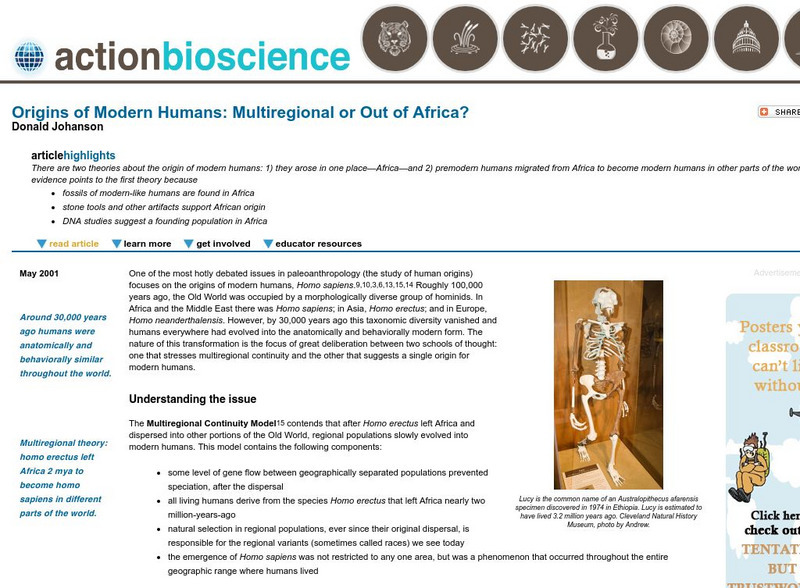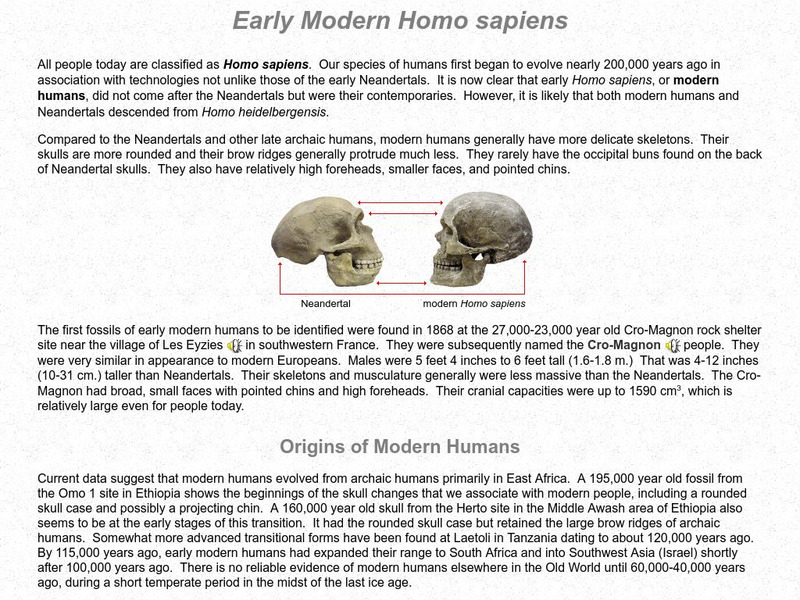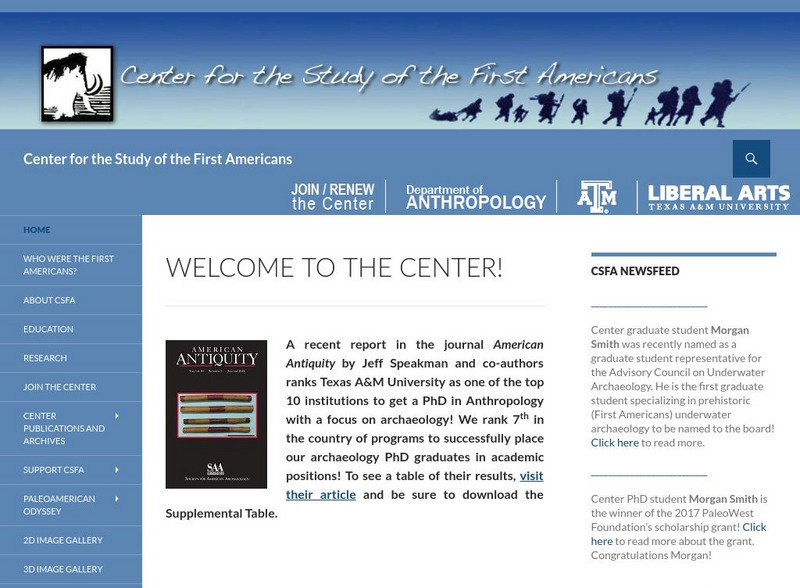Curated OER
Immigrant Photo Analysis
Students examine photographs taken of immigrants during late 1800s and early 1990s in America, and identify factors involved in immigration through examination of primary documents that include statistics, trends, graphs, photographs,...
Curated OER
Desert Views - First Impressions: Travelers on the Gila Trail
Pupils draw animals and plants that are described to them as they read passages of people who traveled across the Gila Trail in the Southwest. In this Gila Trail lesson plan, students also write a letter describing a plant or animal in...
Curated OER
How Can We Locate Specific Places On Earth?
Second graders discover how to use longitude and latitude to locate specific sites on Earth. They compare old and new ways of locating specific places, and discover how latitude and longitude coordinates are used to locate places on Earth.
Curated OER
Great River Bend Adventure
Students use their imagination. They discuss the 4 C's of teamwork: Concentration, Communications, Coomperation, and Consideration. Students discuss the safety guidelines of the project. They complete a rope maze. The group walks...
Curated OER
Digital Picture Books
Second graders create digital picture books reflecting their experiences during the school year on field trips and various classroom activities. Using digital pictures taken during the year, they write captions for each picture and...
Curated OER
"For The Birds" [part II]
Students examine how Chinese and Japanese artists used different kinds of birds
as representations of ideas that were important in both cultures and create their own birds using the technique of origami.
Curated OER
Land Use
Students examine ecosystems that covered Illinois 200 years ago, investigate some living and non-living components of ecosystems, identify components of prairie system, create food webs, and observe human effects on environment. Lessons...
Curated OER
The Industrial Revolution
Eighth graders examine the time period of the Industrial revolution in American history. In this American History lesson, 8th graders read the chapter on this time period. Students create a presentation on this time period to...
Curated OER
America's Civil Rights Movement, Activity Four
Students investigate the concept that people died during the Civil Right;s Movement using the Matix method.
Curated OER
Exploring Folk Traditions and Folk Beliefs
Ninth graders work together to brainstorm an idea to focus on the similiarties and differences between various cultures. Individually, they interview family members using questions they created based on their topic. They use their...
Curated OER
Meet the Underground Railroad
Students research and learn about the Underground Railroad. In this Underground Railroad lesson plan, students take 2 weeks to research an individual, complete journal writings, read passages in small groups, list major events, and more.
Curated OER
Metalling in Around the World
Third graders explore the important leaders in different cultures by researching coinage. Through this process, they also recognize the cultural universality on coinage and currency.
Curated OER
Native Americans
Students, in groups, research various Native American tribes. They wirte a report about the tribe which includes information about their food and ceremonies, among other things. They create a diorama and a poster that shows how they...
Curated OER
Immigration Push and Pull Factors
Eighth graders examine significant ideas, beliefs, and themes; organize patterns and events; and analyze how individuals and societies have changed over time in Maryland, the United States, and the world.
Curated OER
Community Quilt
Second graders use prior knowledge about the community to create a quilt. They use complete sentences to explain their block and also use oral language skills to tell about their caption for their quilt piece.
Curated OER
Garden Guard
Students design and create scarecrows. They write descriptively about the scarecrow for a classroom scarecrow show.
BBC
Bbc News: Early Humans Followed the Coast
The theory of coastal migration of early Americans down the coast of California has been gaining much consideration. Read about some of the evidence supporting this theory.
American Institute of Biological Sciences
Action Bioscience: Origins of Modern Humans: Multiregional or Out of Africa
Two migration theories are on the table for consideration. Weigh the evidence of each one in this article by Donald Johanson of Lucy fame.
The Henry Ford
Early 20th Century Migration: Transportation: Past, Present and Future [Pdf]
A teacher's guide and unit plan that explores the migration of people from within and to the United States in the early 20th century up to the present day, many of them to work in the automobile factories in the northern US. Additional...
Khan Academy
Khan Academy: Activity: Human Migration Patterns
Use this activity to figure out where the first humans lived. This activity requires students to read clues and use their understanding of the clues to create a map to give them a visual representation of early humans movements.
A&E Television
History.com: How Early Humans Survived the Ice Age
The most recent ice age peaked between 24,000 and 21,000 years ago, when vast ice sheets covered North America and northern Europe, and mountain ranges like Africa's Mt. Kilimanjaro and South America's Andes were encased in glaciers. At...
Palomar Community College District
Palomar College: Early Modern Homo Sapiens
An easy-to-understand article traces the origins of modern humans through the use of a simple graph. Various models of migration are also discussed.
National Humanities Center
National Humanities Center: Toolbox Library: Freedom, Making of African American Identity: V. 2, 1865 1917
Sixteen primary sources-historical documents, literary texts, visual images, and audio material-that explore African American perceptions of freedom from Emancipation to the early-twentieth century.
Other
Center for the Study of the First Americans
This institute attempts to provide answers to the questions: when did the first people enter the Americas, who were the first immigrants, where did they come from, and how did they get here?





!["For The Birds" [part II] Lesson Plan "For The Birds" [part II] Lesson Plan](http://lessonplanet.com/content/resources/thumbnails/122476/large/cgrmlwnvbnzlcnqymdeymtaxny0yoda5lwu0ew85zi5qcgc.jpg?1414222640)












![Early 20th Century Migration: Transportation: Past, Present and Future [Pdf] Lesson Plan Early 20th Century Migration: Transportation: Past, Present and Future [Pdf] Lesson Plan](https://static.lp.lexp.cloud/images/attachment_defaults/resource/large/FPO-knovation.png)



